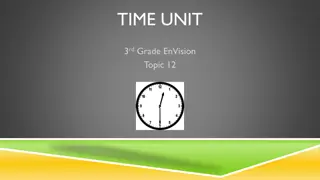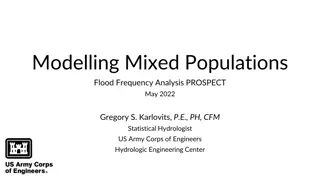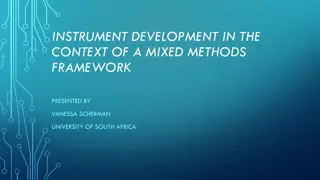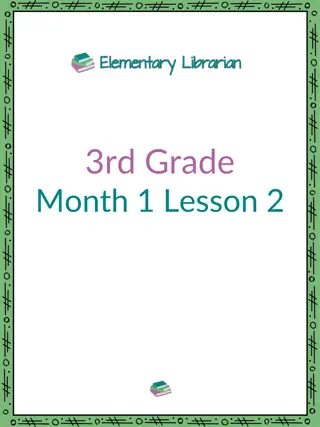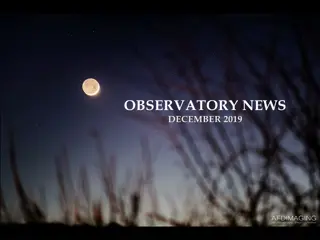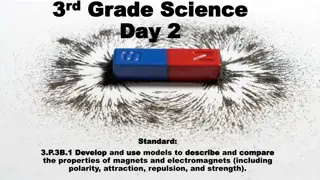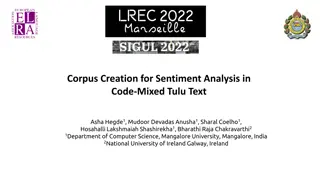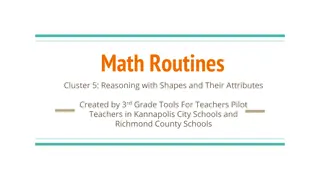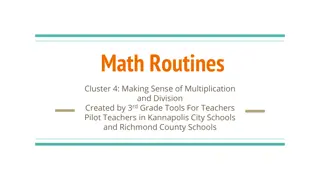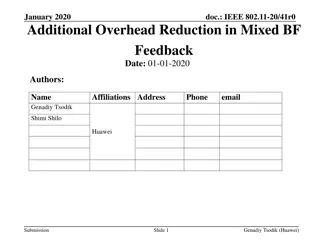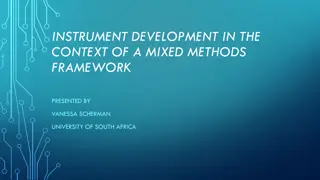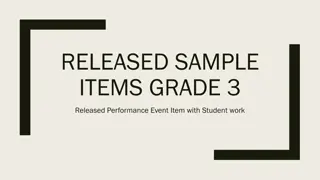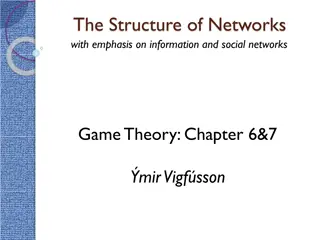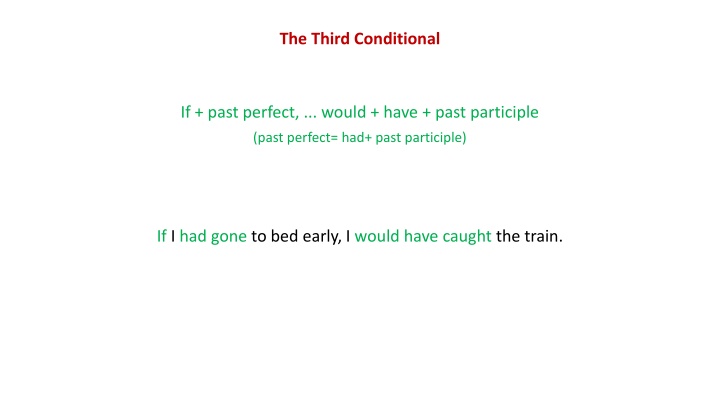
Mastering the Third Conditional in English Grammar
Learn how to effectively use the third conditional in English grammar to talk about unreal past situations and their imagined outcomes. Explore examples, exercises, and mixed conditionals to enhance your understanding of this important grammar concept.
Download Presentation

Please find below an Image/Link to download the presentation.
The content on the website is provided AS IS for your information and personal use only. It may not be sold, licensed, or shared on other websites without obtaining consent from the author. If you encounter any issues during the download, it is possible that the publisher has removed the file from their server.
You are allowed to download the files provided on this website for personal or commercial use, subject to the condition that they are used lawfully. All files are the property of their respective owners.
The content on the website is provided AS IS for your information and personal use only. It may not be sold, licensed, or shared on other websites without obtaining consent from the author.
E N D
Presentation Transcript
The Third Conditional If + past perfect, ... would + have + past participle (past perfect= had+ past participle) If I had gone to bed early, I would have caught the train.
When do we use this conditional? It talks about the past. It's used to describe a situation that didn't happen, and to imagine the result of this situation. If she had studied, she would have passed the exam (but, really we know she didn't study and so she didn't pass) If I hadn't eaten so much, I wouldn't have felt sick (but I did eat a lot, and so I did feel sick). If we had taken a taxi, we wouldn't have missed the plane She wouldn't have been tired if she had gone to bed earlier She would have become a teacher if she had gone to university He would have been on time for the interview if he had left the house at nine
Complete the sentences using the third conditional. 1. He didn't get the job. He couldn't buy a bigger flat. = If he'd got the job, _______________ a bigger flat. 2. You didn't say you were sorry. She left. = She wouldn't have left if _______________ you were sorry. 3. You didn't tell us earlier. We didn't do anything. = We could have done something _______________ us earlier. 4. You stopped quickly. We didn't crash. = If you hadn't stopped quickly, _______________ crashed. 5. You didn't listen to me. This happened. = This never would have happened if you _______________ to me. 6. You didn't apply for the job. You didn't get an interview. = You might _______________ if you'd applied for the job. 7. I went to the party. You persuaded me to go. = I wouldn't have _______________ me to go. 8. I didn't know she was coming. I didn t wait for her. = I would _______________ if I'd known she was coming.
If clause (condition) If + past perfect present conditional If this thing had happened EXAMPLES: If I had worked harder at school, I would have a better job now. I would have a better job now if I had worked harder at school. If we had looked at the map we wouldn't be lost. We wouldn't be lost if we had looked at the map. If you had caught that plane you would be dead now. You would be dead now if you had caught that plane. Main clause (result) that thing would happen.
If clause (condition) If + simple past If this thing happened Main clause (result) perfect conditional that thing would have happened. EXAMPLES If I wasn't afraid of spiders, I would have picked it up. I would have picked it up if I wasn't afraid of spiders. If we didn't trust him we would have sacked him months ago. We would have sacked him months ago if we didn't trust him. If I wasn't in the middle of another meeting, I would have been happy to help you. I would have been happy to help you if I wasn't in the middle of another meeting.
1.- If you ________ (be) a professional basketball player, who_________ (you/play) for? 2.- If he _________ (not study) now, he won t have time later. 3.- If Susan had taken the map, she ________ (not get) lost. 4.- Where would you go on holiday if you _________ (can) choose? 5.- The teacher _________ (be) angry if you didn t do your homework. 6.- What _______ (you/ give) me if it were my birthday tomorrow? 7.- If we recycle more, there _________ (not be) so much rubbish. 8.- If they had something to eat, they __________ (not be) hungry. 9.- If we _________ (hear) the weather forecast, we wouldn t have gone to the beach. 10.- What _________ (you/buy) if you had a credit card? 11.- If they ________ (not hurry) up, they will miss the film.
Complete the sentences below with a third second mixed conditional. 1. Simon woke up early and is very sleepy now. If he (not/wake up) early, he (not/be) sleepy now. 2. I am at home now because it started raining. If it (not/start) raining, I (be) out. 3. The Spanish team didn't train well at all, so they are not champions. If they (train) well, they (be) champions. 4. I lost my job, so I need to look for work. If I (not/lose) my job, I (not/need) to look for work. 5. James won the lottery, so he doesn't need a job now. He (need) a job if he (not/win) the lottery. 6. Alan had a serious argument with his friend Paul. They are no longer friends. If Alan (not/argue) with Paul, they (still/be) friends now. 7. The meeting started late. I'm not at home yet. I (be) at home now if the meeting (start) on time. 8. Mike failed his university exams so he needs to retake them. If he (pass) them, he (not/need) to retake them.





